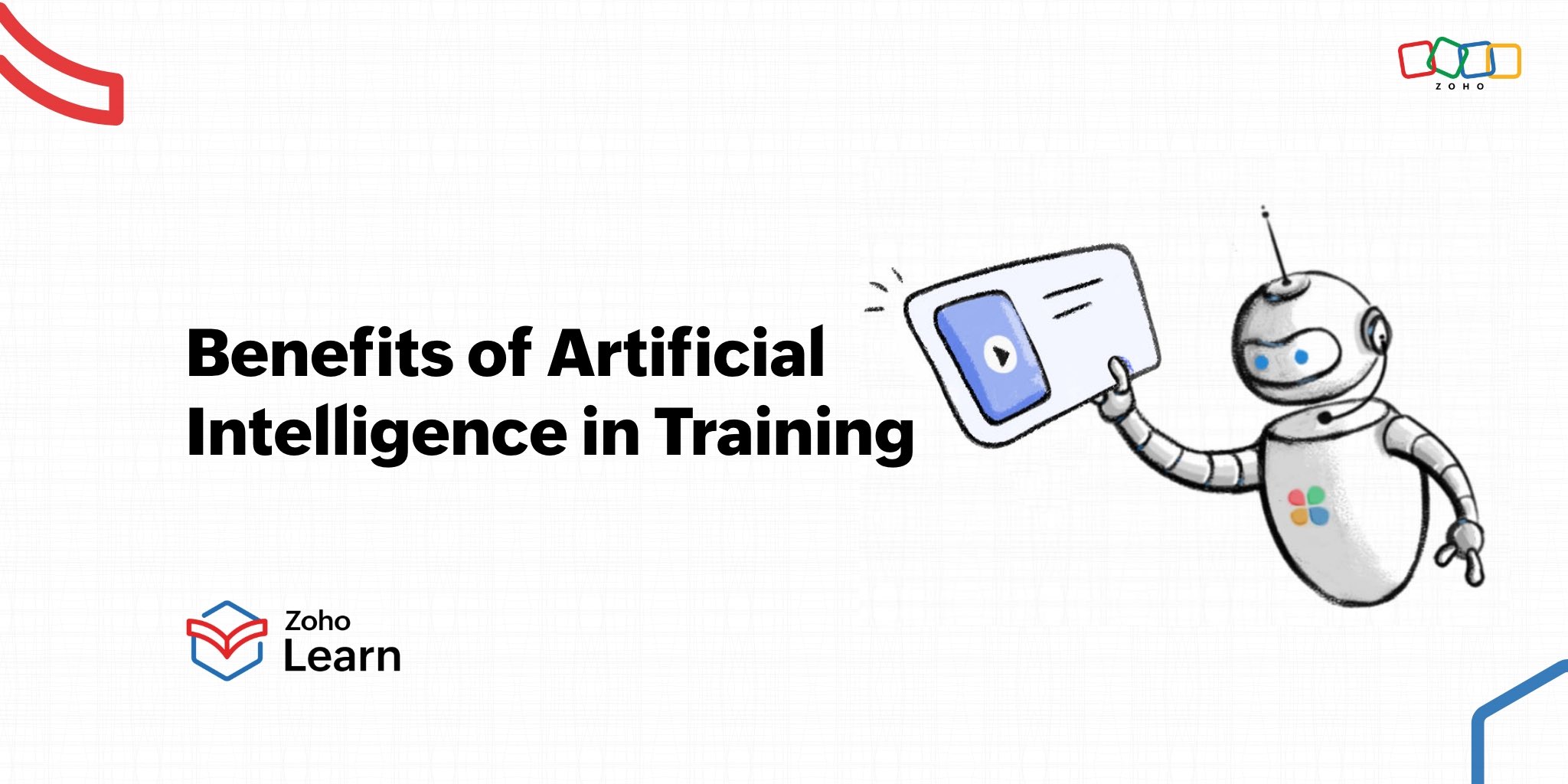Benefits of artificial intelligence in training
- Last Updated : April 8, 2025
- 1.6K Views
- 2 Min Read

The rapid advancement of artificial intelligence (AI) in recent years has fueled growth and innovation across various industries. Enterprises are capitalizing on the data availability, computing power, and advanced analytical capabilities offered by AI tools to streamline routine operations and foster a highly productive work environment. The integration of AI technology is also reshaping training and development. Organizations are looking to leverage AI's capabilities to transform the creation and delivery of training programs. In this article, we'll explore how AI can enhance the training experience.
Reduced cost and time
One of the significant benefits of incorporating AI in training is the potential for reducing costs and saving time. AI can be used to automate content delivery, generate assessments, and track operations, allowing instructors to focus on developing strategies and training content.
Improved content quality
Organizations can analyze recent trends and practices using AI tools to create highly relevant and engaging training content. By leveraging AI in content creation, organizations can ensure that their training materials are up-to-date, accurate, and aligned with the evolving needs of their workforce.
Personalized learning
AI-powered training solutions can provide recommendations for content customization based on individual learner preferences and needs to increase engagement and knowledge retention. These platforms can assess the strengths, weaknesses, and learning styles of individual learners and tailor the content and delivery accordingly.
Adaptive assessments
Traditional assessments often follow a one-size-fits-all approach, which may not effectively gauge the skills and knowledge of individual learners. With AI, assessments can be designed to provide targeted questions based on the learner's responses. This approach enables a more dynamic way of evaluating learner progress and ensures that they're appropriately challenged to test their competencies.
Around-the-clock assistance
Chatbots and virtual assistants can be integrated into training modules for help and support whenever learners need it. AI assistants can be trained to provide instant responses to queries, offer explanations, and guide learners through training materials. This reduces the load on instructors and facilitates a seamless and uninterrupted learning experience for learners.
Advanced analytics
AI technology allows organizations to gain deeper insights into the effectiveness of their training programs through advanced analytics. With data generated from learner interactions, AI can provide valuable metrics and analytics on learner performance, engagement levels, and knowledge gaps. These can help organizations make data-driven decisions to optimize their training initiatives and enable continuous refinement of training content and delivery methods.
Wrapping up
AI-driven tools facilitate automated, personalized, intuitive, and data-driven learning experiences, fostering a culture of continuous learning throughout the entire organization. This helps maximize workforce performance over the course of time, and enables organizations to meet their business objectives, resulting in overall growth and success.


